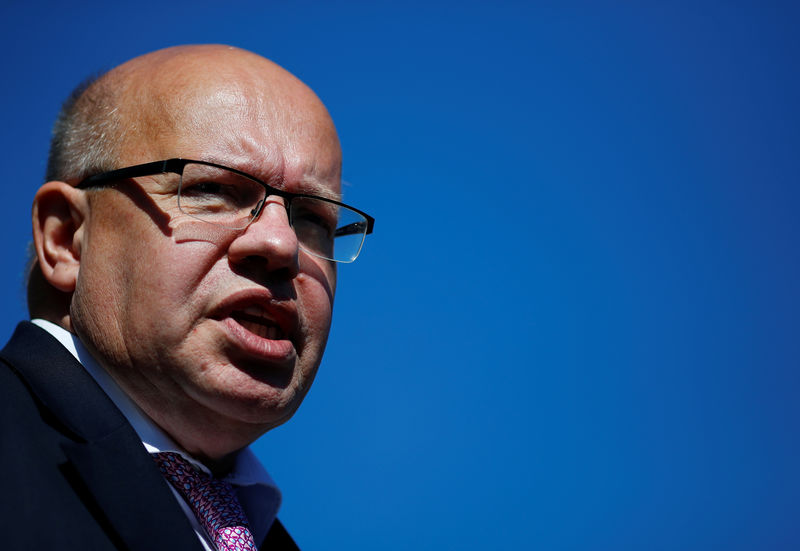BERLIN (Reuters) - The most difficult part in trade negotiations between Europe and the United States is starting now and talks should focus on reducing tariffs on industrial goods to increase the chances of a deal, German Economy Minister Peter Altmaier said on Tuesday.
A confidential U.S. Commerce Department report sent to President Donald Trump over the weekend is widely expected to clear the way for him to threaten tariffs of up to 25 percent on imported autos and auto parts by designating the imports a national security threat.
"For some weeks and months now, we're observing with concern that the U.S. is tightening its trade policies, that tensions are increasing," Altmaier told Deutschlandfunk radio.
"The impact can already be seen in the world economy, global growth has slowed," Altmaier said.
Asked about the risk of higher U.S. car tariffs, Altmaier said he did not buy the argument that imported cars would threaten the national security of the United States.
Altmaier, a confidant of Chancellor Angela Merkel, said that reducing tariffs on cars and other manufactured goods should be the main focus of the ongoing trade talks.
"We are not yet where we want to be. We might have made one-third of the way and the most difficult part will be now," Altmaier said.
Altmaier added that he was in favour of reducing import tariffs for cars to the same level in the U.S. and Europe, "ideally to zero percent".
The trade talks will also be high on the agenda during a meeting of Altmaier with his French counterpart Bruno Le Maire in Berlin later on Tuesday.
Both ministers are expected to narrow differences on how far the negotiation mandate of the European Commission in the talks with the U.S. should go and which areas should be excluded.
France is reluctant to open up its agriculture sector to U.S. imports and Altmaier said he was fine with excluding the issue in the trade talks.
"Agriculture is a very sensitive topic, so we don't want to talk about this in the current situation," Altmaier said.
Altmaier and Le Maire are expected to hold a news conference after the talks.
European Commission President Jean-Claude Juncker told a German newspaper that Trump had promised him he would not impose additional import tariffs on European cars for the time being.

If Trump imposed tariffs on European cars, however, the EU would react immediately and not feel obliged to stick to its promise to buy more soybeans and liquefied gas from the United States, Juncker added.